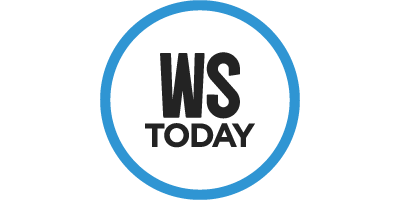Winston-Salem’s next fiscal year begins Monday, July 1. That means the city needs a budget to continue operations. City Manager Pat Pate told City Council the priorities next year will be employee compensation + completing current projects like street resurfacing and improvements to public transit. Let’s take a closer look at the plan:
Preliminary plan
Pate unveiled a $658.9 million proposal in late May. The preliminary plan calls for $51.1 million more than 2023-2024 expenses, an 8.4% increase. Here’s a broad look at how that money will be allocated if the budget is approved:
- $485.8 million for operations
- $63.7 million for debt service
- $109.4 million for capital improvements
Staying competitive
The city is focused on filling staff vacancies + attracting and retaining talent, which Pate says will cost money. City employees would receive raises under the proposed budget, accounting for ~$20 million of the spending increase. The minimum wage for city employees would also increase from $15.45 per hour to $17.96 per hour, starting in October 2024.
Pate said vacancies in the Winston-Salem Fire Department means the city needs to increase the department’s overtime budget by $2.4 million. Under the budget plan, the department will also receive $1.5 million to replace four trucks and equipment. The police department will get an additional $1.2 million to replace 78 police vehicles and equipment.
Funding services and priorities
To pay for these items, Pate’s proposal recommends increasing the property tax rate from 66.10 cents per $100 of assessed value, to 72.50 cents per $100. That 6.4-cent increase would be split between two funds:
- 3.9 cents of the increase will go toward the general fund, which pays for most city services like employee compensation, and vehicle and equipment replacement. The extra funding would meet Pate’s request for a 5.6% increase to the general fund, from $273.8 million to $289.1 million.
- 2.5 cents of the increase would be allocated to the transit fund. The city’s new deal with RATP-Dev USA LLC to improve the Winston-Salem Transit Authority requires an additional $7.1 million in funding. As part of the plan, evening and weekend services will return.
Pate said if a home has the median residential tax value of $145,500, the homeowner could expect to pay $93.12 more annually. He noted that the even with the property tax increase, the average Winston-Salem homeowner is still paying less than North Carolinians living in Charlotte, Raleigh, Durham, and Greensboro. He said Twin City homeowners would pay $1,820 in annual taxes and fees compared to $2,300 to $2,500 in those other NC cities.
Residents can also expect to pay more for essential services. If the proposed budget passes, the following user fees would increase:
- Water and sewer rates would increase 7% starting July 1. The average residential customer could expect to pay about $7.27 more on their bi-monthly bill.
- Stormwater fees would increase 8% starting Jan. 1, 2025.
- The motor vehicle privilege tax would double — increasing from $15 to $30 per vehicle. The $2.8 million generated would be used for street resurfacing.
In Pate’s budget message to City Council, he said striking a balance while balancing the budget was the city’s goal.
“This budget attempts to balance service delivery demands and revenue enhancements to maintain a more sustainable operational and financial position while considering the burden of additional taxes and fees,” Pate said. “This budget is aimed at creating a long-term sustainable funding model to provide vital community services without significantly impacting our city’s fiscal health.”
What’s next?
State law requires City Council to adopt a budget by Sunday, June 30. Council will hear from residents during a public hearing on Monday, June 17 before they vote on the plan. If you would like to comment, show up to Council Chamber at City Hall (101 N. Main St.) at 6 p.m. You can also submit your comments online.












